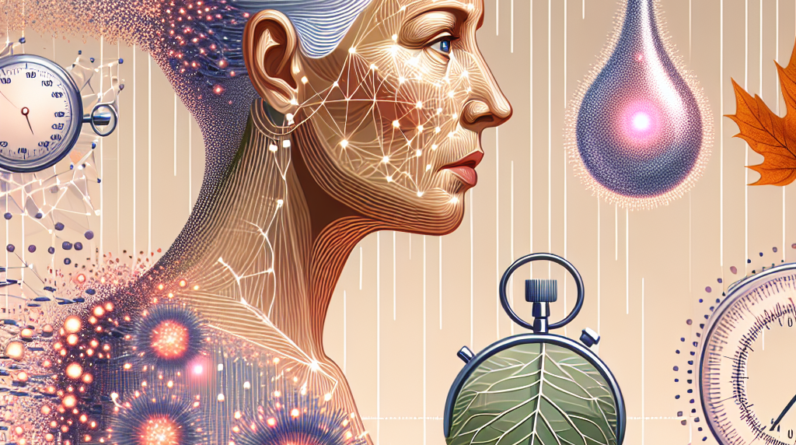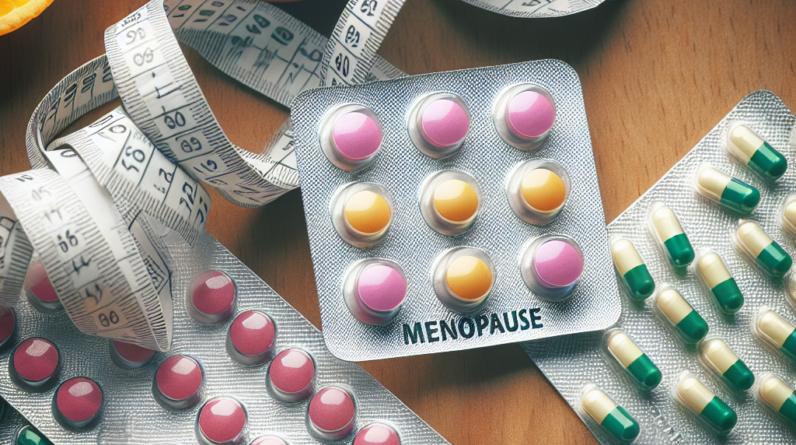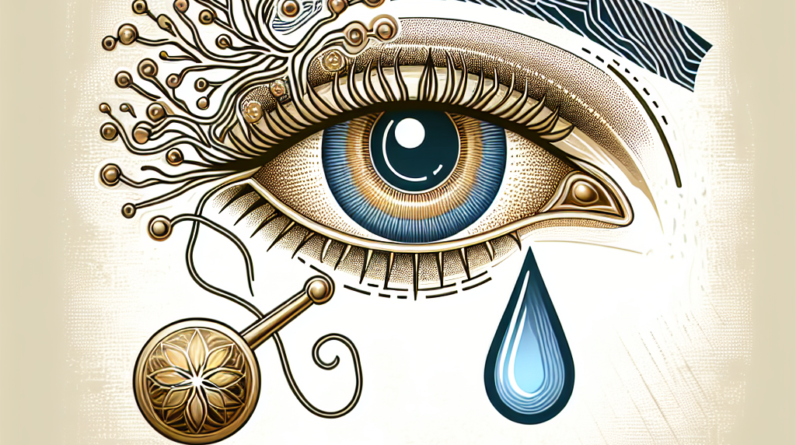
Menopause can bring about a range of uncomfortable symptoms, and one that many women experience is the unsettling sensation of a pounding heart. This article aims to provide you with insight on how to manage the issue of menopause heart pounding. By understanding potential causes and exploring various treatment options, you can find relief and regain control of your well-being during this transformative stage of life.
What is Menopause?
Definition
Menopause refers to the natural biological process that marks the end of a woman’s reproductive years. It is characterized by the cessation of menstrual cycles and the decline in hormone production, particularly estrogen and progesterone, by the ovaries. Menopause typically occurs between the ages of 45 and 55, with the average age being 51. It is a normal phase in a woman’s life, but it can bring about various symptoms and changes in the body.
Symptoms
The symptoms of menopause vary from woman to woman, but the most common ones include hot flashes, night sweats, mood swings, vaginal dryness, sleep disturbances, and changes in libido. These symptoms are primarily due to the fluctuation of hormones that occurs during perimenopause, which is the transitional phase leading up to menopause. While some women may experience mild symptoms, others may find them more severe and disruptive to their daily lives.
Causes
The main cause of menopause is the natural decline in hormonal production as women age. As women approach their late 30s or early 40s, the ovaries gradually produce less estrogen and progesterone. This decline eventually leads to the cessation of menstruation and the onset of menopause. Other factors that can contribute to early menopause include certain medical conditions, such as autoimmune diseases, genetics, and certain medical treatments like chemotherapy or radiation therapy.
Duration
The duration of menopause varies for each individual, but on average, it lasts for several years. The overall duration includes both perimenopause, the stage leading up to menopause, and postmenopause, which refers to the years after menopause. Perimenopause can last anywhere from a few months to several years, with an average duration of four years. Postmenopause, on the other hand, refers to the years following menopause and continues for the rest of a woman’s life.
Understanding Menopause Heart Pounding
Definition of Menopause Heart Pounding
Menopause heart pounding, also known as palpitations, is a common symptom that some women experience during the menopausal transition. It is characterized by a sensation of the heart racing, fluttering, or skipping beats. While it can be unsettling and worrisome, menopause heart pounding is usually harmless and temporary.
Prevalence in Menopausal Women
Studies have shown that menopause heart pounding affects a significant number of women during perimenopause and early postmenopause. It is estimated that up to 40% of menopausal women experience palpitations at some point. The frequency and severity of palpitations can vary widely among individuals.
Factors Contributing to Menopause Heart Pounding
Several factors can contribute to the occurrence of menopause heart pounding. Fluctuations in hormones, particularly estrogen, are believed to play a role in triggering palpitations. Additionally, increased sympathetic nervous system activity, which controls the body’s “fight or flight” response, can contribute to heart pounding. Anxiety, stress, and the physical changes that occur during menopause can also contribute to palpitations.

Signs and Symptoms of Menopause Heart Pounding
Racing or Irregular Heartbeat
One of the main symptoms of menopause heart pounding is a racing or irregular heartbeat. Women may notice that their heart feels like it is racing, pounding, or skipping beats. These sensations can be intermittent or persistent and may last for a few seconds to several minutes.
Flushing or Hot Flashes
Flushing or hot flashes are another common symptom associated with menopause heart pounding. Women may experience sudden waves of heat that spread over their body, accompanied by a racing heart and increased perspiration.
Increased Perspiration
Increased perspiration, particularly during hot flashes or palpitation episodes, is often experienced by women with menopause heart pounding. This excessive sweating can be bothersome and may contribute to feelings of discomfort and anxiety.
Anxiety and Nervousness
Menopause heart pounding can also be associated with feelings of anxiety and nervousness. Women may feel anxious or on edge, especially during episodes of palpitations, which can further exacerbate the symptoms.
Possible Causes of Menopause Heart Pounding
Hormonal Changes
Hormonal changes, particularly the decline in estrogen levels, can be a significant contributing factor to menopause heart pounding. Estrogen plays a role in regulating the cardiovascular system, including heart rate and blood vessel function. Fluctuating hormone levels during menopause can disrupt this balance and lead to palpitations.
Estrogen Withdrawal
The sudden withdrawal of estrogen during menopause can also contribute to menopause heart pounding. Estrogen withdrawal can trigger changes in the autonomic nervous system, which regulates heart rate and rhythm, and can result in palpitations.
Increased Sympathetic Nervous System Activity
Menopause heart pounding may be attributed to increased sympathetic nervous system activity. The sympathetic nervous system controls various bodily functions, including heart rate and blood pressure. During menopause, the fluctuations in hormone levels can overstimulate this system, leading to palpitations.
Anxiety and Stress
Anxiety and stress can have a significant impact on the cardiovascular system and contribute to menopause heart pounding. Menopause itself can be a stressful and anxiety-inducing time for many women, and these emotions can exacerbate palpitations.

Understanding the Link Between Menopause and Heart Health
Cardiovascular Risks in Menopausal Women
Menopause is associated with an increased risk of cardiovascular disease in women. As estrogen levels decline, women become more susceptible to conditions such as high blood pressure, high cholesterol, and heart disease. It is important for menopausal women to prioritize heart health and manage any symptoms, such as menopause heart pounding, to minimize their overall cardiovascular risk.
Effects of Estrogen on Heart Health
Estrogen has a protective effect on the cardiovascular system. It helps reduce inflammation in blood vessels, maintains healthy cholesterol levels, and supports the relaxation of blood vessel walls. The decline in estrogen during menopause can disrupt these beneficial effects, contributing to an increased risk of heart disease.
Postmenopausal Cardiovascular Disease
After menopause, the risk of developing cardiovascular disease increases significantly. Women who experience menopause heart pounding should be proactive in monitoring their heart health, as palpitations can be an early warning sign of underlying cardiovascular issues.
Managing Menopause Heart Pounding
Lifestyle Changes
Making certain lifestyle changes can help manage menopause heart pounding. These include maintaining a healthy diet, exercising regularly, avoiding triggers such as caffeine and alcohol, and practicing stress-reducing techniques.
Stress Reduction Techniques
Stress reduction techniques can be effective in managing menopause heart pounding. Practices such as deep breathing exercises, meditation, yoga, and mindfulness can help reduce anxiety and promote a sense of calm.
Medications for Heart Pounding
In some cases, healthcare professionals may recommend medications to manage menopause heart pounding. These medications, such as beta-blockers or anti-anxiety medications, can help regulate heart rate and reduce palpitations.
Hormone Replacement Therapy (HRT)
Hormone replacement therapy (HRT) may be considered for women experiencing severe menopause symptoms, including menopause heart pounding. Estrogen replacement can help alleviate palpitations and other symptoms associated with hormonal changes. However, the decision to pursue HRT should be made in consultation with a healthcare professional, considering individual circumstances and potential risks.
Alternative and Complementary Approaches
Some women find relief from menopause heart pounding through alternative and complementary approaches, such as acupuncture, herbal remedies, or dietary supplements. It is essential to discuss these options with a qualified healthcare professional to ensure they are safe and appropriate for individual needs.
When to Consult a Healthcare Professional
Severity and Frequency of Heart Pounding
If menopause heart pounding becomes severe, frequent, or persistent, it is advisable to consult a healthcare professional. They can evaluate the symptoms, check for any underlying cardiovascular conditions, and recommend appropriate management strategies.
Associated Symptoms
If menopause heart pounding is accompanied by other concerning symptoms, such as chest pain, shortness of breath, dizziness, or fainting, it is crucial to seek medical attention immediately. These symptoms may indicate a more serious underlying heart condition that requires prompt evaluation and treatment.
Personal and Family Medical History
Individuals with a personal or family history of cardiovascular disease, including heart disease or arrhythmias, should inform their healthcare professional about their condition. This information can help guide the evaluation and management of menopause heart pounding.
Underlying Heart Conditions
If a woman has a known underlying heart condition, such as an arrhythmia or valve disorder, it is crucial to consult a healthcare professional to manage menopause heart pounding effectively. They can provide guidance on symptom management and potential adjustments to existing treatment plans.
Preventing Menopause Heart Pounding
Maintaining a Healthy Lifestyle
Maintaining a healthy lifestyle can help prevent or manage menopause heart pounding. This includes consuming a balanced diet, avoiding smoking, minimizing alcohol intake, and maintaining a healthy body weight.
Regular Exercise
Regular exercise is beneficial for both overall health and heart health. Engaging in aerobic exercise, such as brisk walking, swimming, or cycling, can help improve cardiovascular health and alleviate menopause symptoms, including palpitations.
Dietary Modifications
Certain dietary modifications may help manage menopause heart pounding. Avoiding trigger foods such as caffeine and spicy foods, and consuming heart-healthy foods such as fruits, vegetables, whole grains, and lean proteins, can contribute to overall cardiovascular health.
Stress Management
Managing stress is crucial in preventing menopause heart pounding. Engaging in relaxation techniques, practicing self-care, and seeking support from loved ones or professional counselors can help reduce stress levels and promote heart health.
Frequently Asked Questions (FAQs)
Can menopause cause heart palpitations?
Yes, menopause can cause heart palpitations, known as menopause heart pounding. Hormonal changes, including the decline in estrogen levels, can contribute to palpitations during menopause.
Are heart palpitations during menopause dangerous?
In most cases, heart palpitations during menopause are harmless and temporary. However, if palpitations are severe, frequent, or accompanied by other concerning symptoms, it is important to seek medical evaluation to rule out any underlying heart conditions.
Can hormone replacement therapy help with menopause heart pounding?
Hormone replacement therapy (HRT), particularly estrogen replacement, may help alleviate menopause heart pounding in some women. However, the decision to pursue HRT should be made in consultation with a healthcare professional, taking into consideration individual medical history and risks.
What other symptoms are associated with menopause heart pounding?
In addition to heart palpitations, menopause heart pounding can be accompanied by symptoms such as hot flashes, increased perspiration, flushing, and feelings of anxiety or nervousness.
Is menopause heart pounding temporary or permanent?
Menopause heart pounding is typically temporary and improves as hormone levels stabilize after menopause. However, individual experiences may vary, and it is important to seek appropriate medical advice if symptoms persist or worsen.
Conclusion
Menopause heart pounding is a common symptom experienced by many women during the menopausal transition. While it can be unsettling, it is usually harmless and temporary. Understanding the causes and associated symptoms of menopause heart pounding can help women proactively manage their symptoms and prioritize their heart health. By adopting lifestyle changes, seeking appropriate medical guidance when needed, and practicing self-care, women can navigate this phase of life with confidence and comfort.







